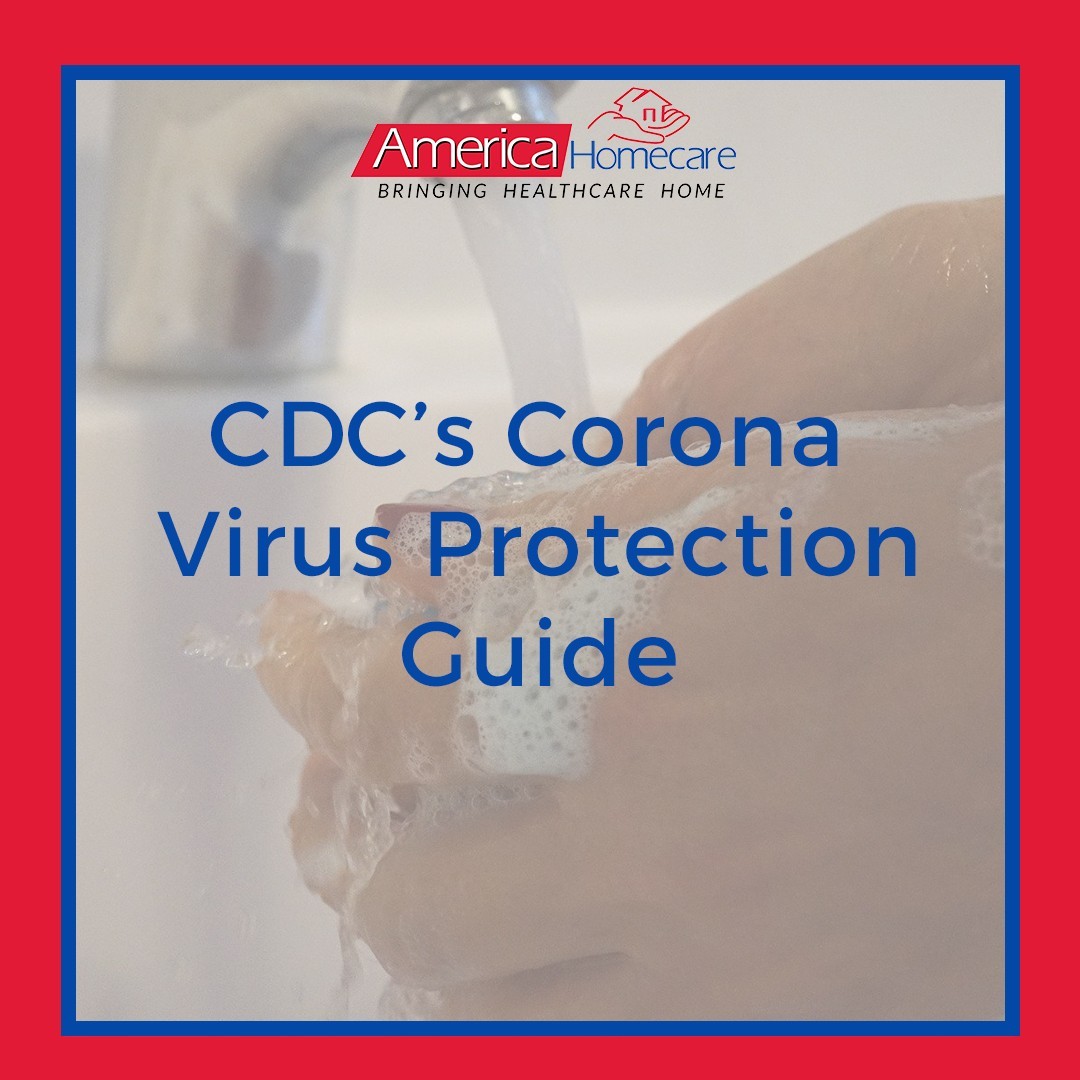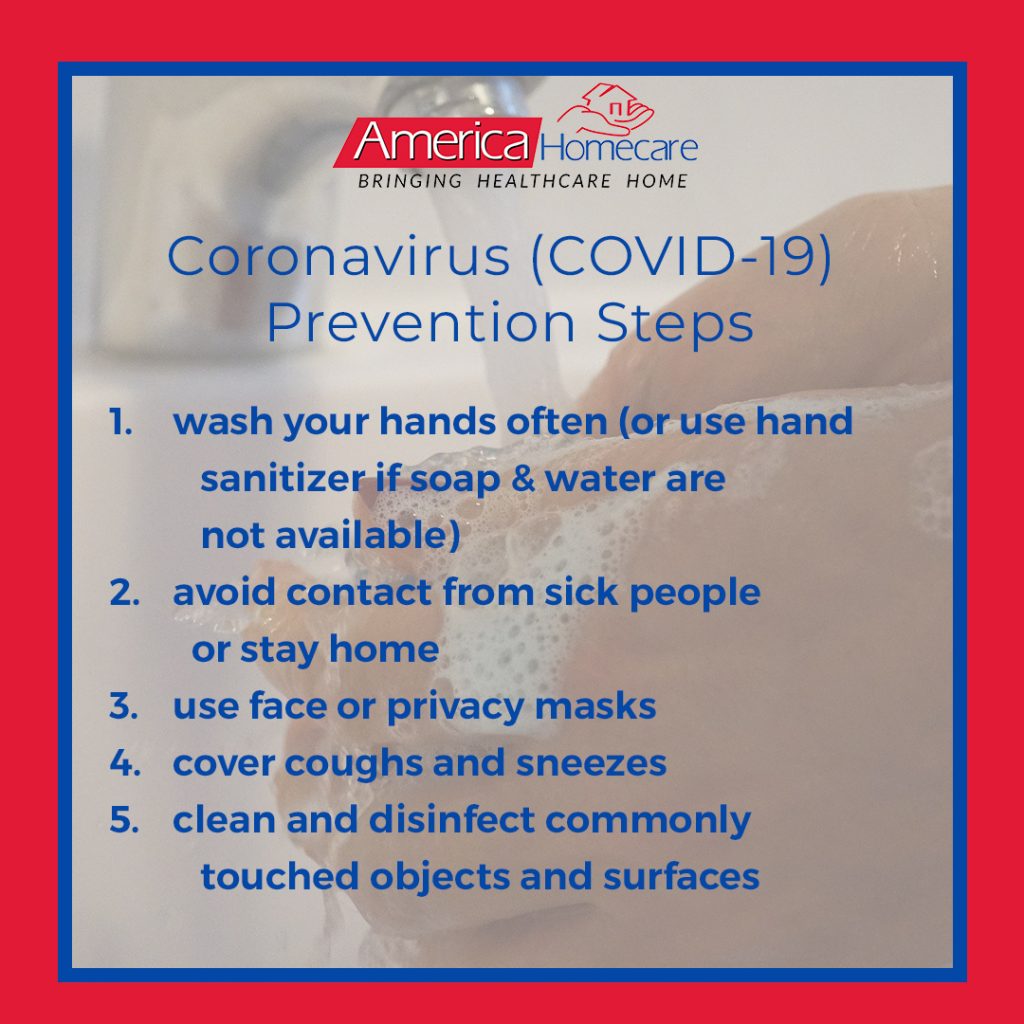CDC Corona Protection Guide

The CDC has provided a corona protection guide from all their findings. However, coronavirus or COVID-19 is a newly discovered virus. Experts constantly learn more and more about it. At the moment, there is no vaccine. Taking proper steps to protect yourself and others can lower the spread significantly.
Please note that people who are at higher risk for COVID-19 include the following groups:
- 65+ year olds
- nursing home or LTC-facility communities
- people with chronic lung disease or moderate to severe asthma
- people with serious heart conditions
- those who are immunocompromised (cancer treatment, smoking, bone marrow or organ transplantation, immune deficiencies, poorly controlled HIV/AIDS, and prolonged use of corticosteroids and other immune weakening medications are some of the things that cause one to be immunocompromised)
- people with severe obesity (BMI of 40+)
- people with chronic kidney disease undergoing dialysis, liver disease, or diabetes
Other people who are at risk are pregnant people and people experiencing homelessness.
1. Educate Yourself
As we stated before, there is no vaccine for coronavirus aka COVID-19. The best way of prevention is to avoid being exposed to the virus. Coronavirus is commonly thought to be spread through person-to-person. Close contact that is less than 6 feet, being near someone’s cough/sneeze respiratory droplets, then unintentionally inhaling these droplets from an infected person.
2. Protect Yourself
Clean your hands regularly.
Most importantly, wash your hands regularly with soap and water for at least 20 seconds. (We covered proper hand-washing in a previous blog post.) Hand sanitizer that is at least 60% alcohol can be an alternative if you are not accessible to soap and water. It is important to wash especially after sneezing, coughing, blowing your nose, or leaving a public space.
Make sure you avoid contact with your eyes, mouth, and nose with unwashed hands
Avoid close contact.
To further reduce the risk, avoid contact with people who are sick. If COVID-19 cases are rising in your community, isolate yourself from other people. You should especially practice social distancing if you fall into one of the groups at the beginning of the post.
3. Protect Others
Stay home if you are sick.
If you are sick, stay home, except to get medical treatment.
Cover your coughs and sneezes.
Use a tissue or the inside of your elbow when you cough or sneeze to cover them. Dispose of used tissues and immediately wash your hands. You must wash your hands with soap and water for at least 20 seconds. If soap and water are not available to you, use hand sanitizer that is at least 60% alcohol.
Wear facemasks if you are sick or caring for a sick person.
If you’re sick and will be around other people, you should protect others by wearing a facemask. This includes ride sharing, sharing a room, before entering a health care provider’s office. In the case that wearing facemasks may be an issue to you, do your best to cover coughs and sneezes with tissue or your elbow.
Those who care for sick people should also wear facemasks. They may be in short supply so you don’t have to wear one if you are not sick. Its priority should be reserved to caregivers.
Practice proper disinfecting and cleaning.
Clean dirty surfaces beforehand and disinfect commonly used items like tables, doorknobs, light switches, countertops, handles, desks, phones, keyboards, toilets, faucets, and sinks. Clean with water and soap/detergent before disinfecting if any surfaces are dirty.

Resource links:
https://www.cdc.gov/coronavirus/2019-ncov/prevent-getting-sick/prevention.html
https://www.cdc.gov/coronavirus/2019-ncov/need-extra-precautions/people-with-medical-conditions.html
To see previous posts we’ve covered with some helpful tips and information on the coronavirus (COVID-19), be sure to visit our category page or you can view this post with all the infographics for easy printing or reviewing.

Get care from someone you trust
Do you want to receive care from your
loved one while they are compensated
by Medicaid?